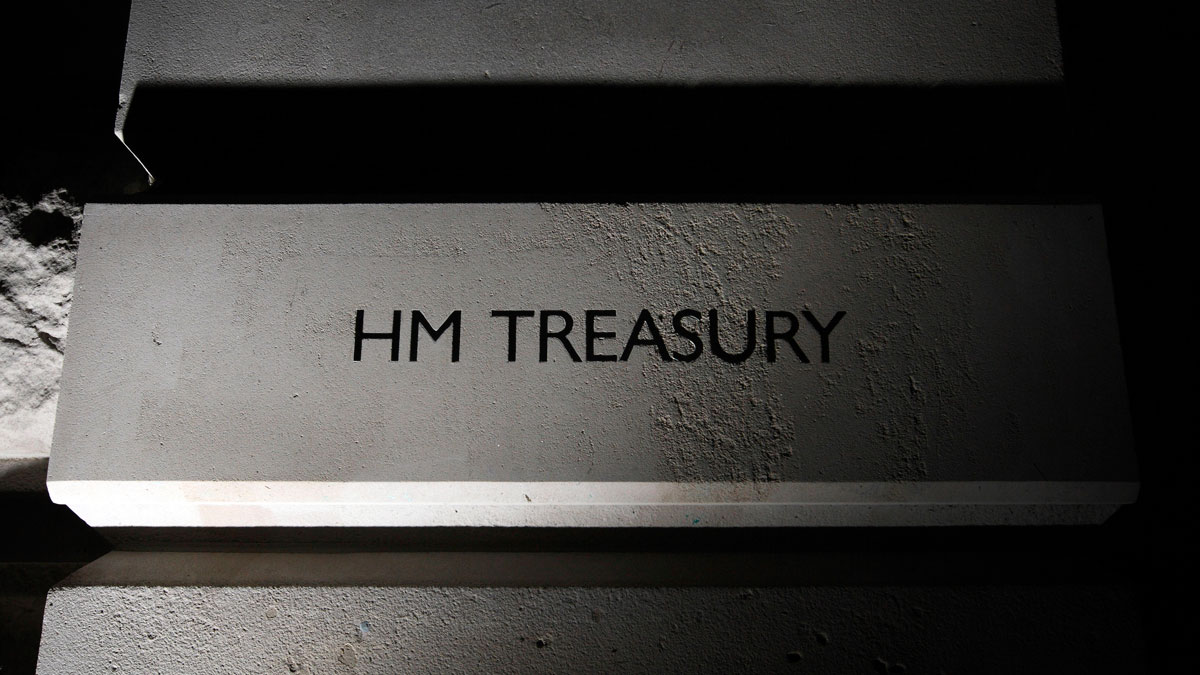HMRC to hit offshore tax evaders with 200% fine
Treasury announces second major attack on tax dodgers – with investigations going back 20 years

A free daily email with the biggest news stories of the day – and the best features from TheWeek.com
You are now subscribed
Your newsletter sign-up was successful
For the second time in as many weeks, the government has set out a major attack on those who try to dodge paying their fair share of tax.
The Treasury has published a consultation on new laws that would require offshore tax evaders to declare any unpaid levies going back up to 20 years and pay what they owe - plus any interest and hefty penalties.
The regulations will apply equally to individuals and companies using offshore structures, it says.
The Week
Escape your echo chamber. Get the facts behind the news, plus analysis from multiple perspectives.

Sign up for The Week's Free Newsletters
From our morning news briefing to a weekly Good News Newsletter, get the best of The Week delivered directly to your inbox.
From our morning news briefing to a weekly Good News Newsletter, get the best of The Week delivered directly to your inbox.
In cases where the actions were deliberate and concealed, failure to come forward voluntarily could be met with a fine of up to 200 per cent of the amount owed, effectively tripling the back-tax bill.
The proposals set a September 2018 deadline for anyone in the UK who has reduced their tax bill illegally, whether by shifting income or profit outside the UK or by not declaring income arising offshore, to come forward.
This is the date by which the second phase of a transparency project involving up to 100 countries, including UK overseas tax havens such as the British Virgin Islands, will be in place. From then, HMRC has access to automatic data on overseas accounts held by UK citizens and on the beneficial owners of offshore companies and trusts.
The Treasury consultation adds that individuals and companies would have to declare any unpaid taxes dating back four years that came about by errors "despite taking reasonable care", rising to six years for underpayment brought about by carelessness and two decades for deliberate evasion.
A free daily email with the biggest news stories of the day – and the best features from TheWeek.com
The worst penalties relate to evasion in the tax years from 2011/2012 onwards.
The plans come after proposals last week to fine accountants and advisers up to 100 per cent of the tax their clients managed to dodge if they are found to have facilitated or promoted avoidance schemes that are later defeated in court.
Under the latest recommendations, individuals may also be forced to give information on "any third party that has enabled or facilitated their offshore non-compliance".
Parliament is currently working on new legislation to introduce penalties for offshore evaders for ongoing activities, including a fine up to ten per cent of the underlying assets on which they have avoided paying tax.
Firms face heavy fines for selling unlawful tax avoidance schemes
17 August
Accountants and financial advisers found to be "enablers" of tax avoidance could face fines of up to 100 per cent of the amount dodged if new government proposals go through.
They also face being "named and shamed" for their involvement in promoting schemes that exploit unintended loopholes.
This could compromise their ability to get professional indemnity insurance and effectively put them out of business, Richard Murphy, a chartered accountant and academic at City University, told the BBC.
The new penalties are set out in a discussion document published by HMRC - a new front in the battle against tax avoidance heralded by former chancellor George Osborne and taken up by new Prime Minister Theresa May.
Tax avoidance and evasion is officially estimated to cost the taxpayer up to £3bn a year, but Murphy says the true figure could be much higher at around £10bn.
"Tax avoidance takes money away from public services and places disproportionate demands on the government’s resources," says Jane Ellison, the financial secretary to the Treasury, in the HMRC paper.
"Those who seek an unfair advantage, or who provide the services that enable it… should bear real risks and costs for their choices."
At present, accountants, financial advisers, law firms or others who are involved in schemes found to be in breach of tax laws face "little risk", says the BBC.
Under the new proposals, they would face fines of up to the full amount of tax deemed to have been avoided if the activity was "deliberate and concealed". This would be reduced in less serious cases and there would be no penalty where "reasonable care" was taken.
This marks a significant shift and places the burden on the avoider to prove their benign intentions. The penalties would not be linked to those faced by the person benefitting from the avoidance; instead, the trigger would be a court decision in favour of HMRC.
The Treasury has won a string of victories against schemes that seek to artificially benefit from reliefs intended for the likes of film investment, notes the Financial Times.
-
 Sepsis ‘breakthrough’: the world’s first targeted treatment?
Sepsis ‘breakthrough’: the world’s first targeted treatment?The Explainer New drug could reverse effects of sepsis, rather than trying to treat infection with antibiotics
-
 James Van Der Beek obituary: fresh-faced Dawson’s Creek star
James Van Der Beek obituary: fresh-faced Dawson’s Creek starIn The Spotlight Van Der Beek fronted one of the most successful teen dramas of the 90s – but his Dawson fame proved a double-edged sword
-
 Is Andrew’s arrest the end for the monarchy?
Is Andrew’s arrest the end for the monarchy?Today's Big Question The King has distanced the Royal Family from his disgraced brother but a ‘fit of revolutionary disgust’ could still wipe them out
-
 Brits keeping 21 million ‘money secrets’ from friends and family, survey reveals
Brits keeping 21 million ‘money secrets’ from friends and family, survey revealsSpeed Read Four in ten people admit staying quiet or telling fibs about debts or savings
-
 London renters swap cramped flats for space in suburbia
London renters swap cramped flats for space in suburbiaSpeed Read New figures show tenants are leaving Britain's cities and looking to upsize
-
 Should the mortgage holiday scheme have been extended?
Should the mortgage holiday scheme have been extended?Speed Read Banks warn that some homeowners may struggle to repay additional debt
-
 RBS offers coronavirus mortgage holidays
RBS offers coronavirus mortgage holidaysSpeed Read Taxpayer-owned bank follows measures taken in virus-struck Italy
-
 What are the changes to National Savings payouts?
What are the changes to National Savings payouts?Speed Read National Savings & Investments cuts dividends and prizes for bonds
-
 China clears path to new digital currency
China clears path to new digital currencySpeed Read Unlike other cryptocurrencies, Beijing’s would increase central control of the financial system
-
 Why are donations surging to the RNLI?
Why are donations surging to the RNLI?Speed Read Charity enjoys flood of funding after criticism for overseas work
-
 PPI deadline day: how to claim
PPI deadline day: how to claimSpeed Read Final chance for consumers to apply for compensation